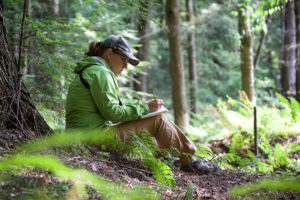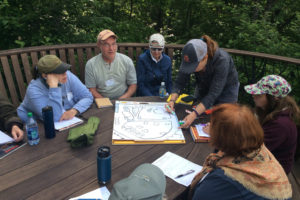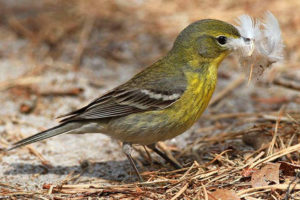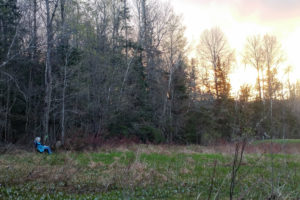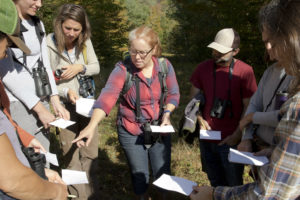Slow Birding: Reconnecting with Nature and Self

Instructors: Bridget Butler
POSTPONED to September 12 - 13 | $265
Course size: 10 students
Adaptations and Expectations for our 2020 BioU Programs as of June 11, 2020:
- We will no longer be serving food or drinks this season. We ask that you please bring your own food. We will be issuing a $30 refund to all those already registered who opted for meals.
- Courses have been adapted to take place largely in the field or in our event tent, but there may be 60-90 minutes of lecture per day in our large indoor space.
- Some courses have been rescheduled so that there are no longer two courses happening simultaneously on the premises.
- Course size has been reduced to 10 participants or fewer.
- If you will be traveling from out of state, please contact us before the course to evaluate the safety of your participation.
In order to keep you, our staff, and our community safe, NBNC is adhering to strict safety protocols based on CDC and VT Department of Health guidelines. We’re in this together, so here’s what you can expect from us, and what we ask of you as a participant of an in-person NBNC program:
What you can expect of us:
- Breathing Room: We’ve capped all our programs at 10 participants or fewer, and designed them to take place outdoors, with the exceptions of bathroom access, thunderstorm contingencies, and (in some cases) short-term use of the community room.
- Cleanliness: All potential shared surfaces will have been sanitized before and after each program. No two programs will share the same indoor space (including bathrooms) on any given day. We’ll start each program with a briefing to ensure everyone is on the same page regarding behavior, expectations, masks, distancing, etc.
- Professionalism: We have completed state-mandated safety trainings, established a staff/board safety committee and a COVID-19 Task Force, and are adhering to strict workplace guidelines to make sure we are taking appropriate measures to make NBNC a safe place to work, learn, and play.
- Honesty: Our instructors will be following state safety guidelines, and complete health screenings prior to each program to ensure a healthy staff and a safe space for each program.
- Respect: Our staff and instructors will wear a mask at all times (inside and outside), and maintain at least 6’ distance from all other people throughout all programs.
- Transparency: We want to make sure you are comfortable. If you’ve got questions or concerns about our programs and policies, please reach out to us at [email protected].
What we ask of you:
- Honesty: Do not come to the program if you are feeling ill in any way. You’ll be asked to sign a waiver and health screening document upon arrival acknowledging that you are symptom-free and haven’t been at high risk of exposure to the coronavirus recently. If you develop COVID-like symptoms within 14 days after the program, notify NBNC immediately.
- Respect: Wear a mask at all times (inside and outside), during NBNC programs. Maintain at least 6’ distance from all other people, including staff, during the program. Follow all safety guidelines explained by our staff.
- Cleanliness: Sanitize bathrooms and other common surfaces before and after use, according to our guidelines posted in each space. Bring and use hand sanitizer, and wash your hands thoroughly.
- Flexibility: Please understand that programs may be cancelled on very short notice, and that our protocols are continually adapting to best available science and expert recommendations.
Thank you for your support in keeping our community safe!
S
ounds a bit strange, “slow birding.” Watching birds isn’t really fast in the first place and the pace of a birder in the field is already slow and methodical. But, it is possible to change how we approach traditional birding and what we get out of it. Slow Birding is a practice that builds a deeper observation of birds while at the same time creating a deeper connection to your self and the place you live.
Birding or bird watching is one of the top three hobbies in North America. People spend thousands of dollars a year on equipment, guides, birdseed, feeders and travel in order to enjoy birds. Birds are everywhere, from cities to farmlands, from the mountains to the shorelines. Birding can be competitive and methodical or it can be mindful and meditative. Recent studies have shown that noticing birds can improve your mental health, reduce depression and improve memory and attentiveness. Other research points out that just being in nature has the power to make us happier.
Bird Diva Bridget Butler will share the practice of Slow Birding and how you can awaken your innate birding skills and reconnect with nature. She’ll share a variety of techniques that will help you look at birds, listen to them and interpret their behavior that will not only build your skills as a naturalist but will provide you with a practice that will allow you to slow down and reconnect with the natural world.
Course Goals and Objectives
- Participants will learn how to create a practice of observing birds using the sit spot method
- Participants will learn the birding by impression approach to identifying birds
- Participants will develop skills to recognize bird vocalizations and describe what they’re hearing
- Participants will learn how to interpret a variety of bird behaviors
- Participants will reflect on biophilia & why health improves when we spend time in nature
About the Instructor(s)
Bridget Butler, AKA The Bird Diva, has been working in conservation and environmental education for more than 20 years throughout New England. Her business Bird Diva Consulting has her traveling across Vermont delivering presentations, leading bird walks, and surveying birds for landowners. Bridget has worked for the Audubon Society in Vermont, Maine, New Hampshire, and Massachusetts and helped create Audubon Vermont’s Forest Bird Initiative. You may have seen her on local television talking about birds and conservation or heard her on Vermont Public Radio’s annual bird shows on Vermont Edition. As the Bird Diva, she feels it important that birders use their passion for birds to make a difference by helping to protect habitat for birds and other wildlife. Bridget lives in St. Albans with her husband and three young children who she’s grooming to be the next caretakers of this wild world!
Meals
UPDATE 6/11/2020: Due to COVID-19 concerns, meals and beverages will not be provided this year. We ask that you please bring your own food. Students already registered who opted for meals will receive a $30 refund.
Required Materials and Recommended Reading
Required:
- Birding by Impression: A Simpler Method for Field Identification by Kevin T. Karlson
- Birdwatching is an Easy Way to Practice Mindfulness - Tonic Magazine
- Why & How You Should Start A Sit Spot Routine - Mother Nature Network
Recommended:
- What the Robin Knows by John Young
- Birding by Impression by Kevin T. Karlson & Dale Rosselet
- Stokes Nature Guides: Bird Behavior Volumes 1-3 by Donald & Lillian Stokes
- Field Guide to Bird Sounds of Eastern North America by Nathan Pieplow
Field & Classroom Gear
- Seat: You’ll be spending a few hours a day sitting in one spot – bring along a cushion, seat, chair that you can carry easily. (e.g. crazy creek, folding chair, hunting stool)
- Boots: Insulated, water-repelling for early morning dew, streamside walks & sits
- Binoculars: If you don’t have a pair, please let us know. We have a limited number to loan out for the weekend.
- Field Journal & Pencil: You’ll be asked to take notes during our sit spot sessions. These notes will help you contribute to the group debrief that follows each session. Pick a sturdy journal for both indoor & outdoor notetaking as well as a pen or pencil that will work in wet or cold conditions. (e.g. Rite in the Rain field books are great for this!)
- Water Bottle & Travel Mug: These two items are crucial during our sit spot sessions! Great to have a hot beverage during a cold morning sit.
Timing
Course begins 9 AM on September 12 at North Branch Nature Center. Course begins on Sunday at a time of the instructor's choosing. Course concludes by 5 PM on September 13.
Academic Credit / Professional Development
This course qualifies for 1 graduate-level science credit for an additional $150 course fee. All BioU courses are accredited by Castleton University. It is the student’s responsibility to ensure that home institutions will accept the credit. Participants pursuing academic credit will be required to complete an additional assignment above and beyond the course hours, including literature review, reflective writing, or a field-based project.
This course qualifies for 20 hours of professional development hours and continuing education units. Certificates of completion are provided at the conclusion of the course.
Cancellation Policy
While we realize that unexpected circumstances arise that are out of our control, North Branch Nature Center cannot guarantee refunds for registrations cancelled within 30 days of the course. If a cancellation occurs within this window, NBNC will attempt to fill the space from our wait list and provide a full refund. If the course needs to be cancelled within 30 days of the program, NBNC will provide a full refund. If you need to cancel due to concerns related to COVID-19, a full refund will be provided up to 48 hours before the course.
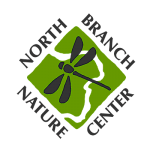
713 Elm Street
Montpelier, Vermont 05602
(802) 229-6206
Hours: Center Open Monday-Friday 9-4
Trails Open 24/7

